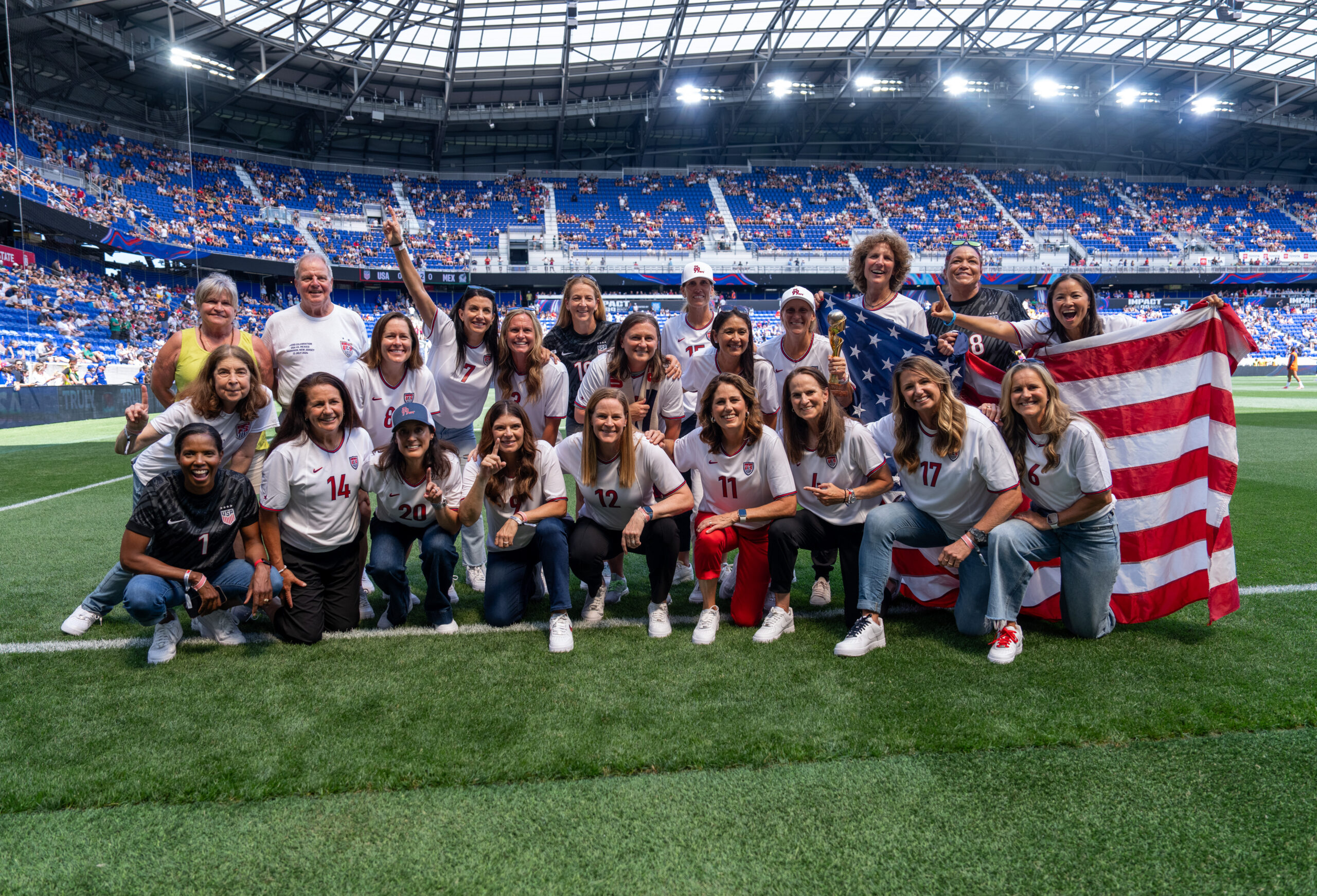It has been 25 years since the U.S. Women’s National Soccer Team’s legendary penalty shoot-out against China during the 1999 FIFA Women’s World Cup final, which secured the team — who became known as “The 99ers™” — a victory in front of 90,000 fans at the Rose Bowl in Pasadena, Calif. It is a triumph that is remembered for catalyzing so much more than just winning a game. It was a moment that inspired millions around the world and changed the trajectory of women’s sports forever. What makes The 99ers deserving of the Women’s Sports Foundation’s Wilma Rudolph Courage Award is not only their grit, power and determination demonstrated on the pitch that day, but also how they have bravely used their platform to advocate for critical gains in soccer and, more broadly, for girls and women, that have reverberated throughout the sports ecosystem.
The 99ers’ fight for equality, including better pay and working conditions, has been well documented, but some may not realize that their uphill battle began a few years prior to that epic Women’s World Cup final in Pasadena.
Ahead of the 1996 Olympic Games in Atlanta — where women’s soccer made its debut — the U.S. Soccer Federation locked out nine players from training camp for advocating for equitable contracts between the women’s and men’s teams. After several weeks, their tenacity paid off. They secured new contracts that guaranteed bonuses for making the podium, not just winning gold, as well as previously unheard-of basic benefits, including paid pregnancy leave, severance pay, additional performance bonuses and paid childcare for two of the players who had young children. Though the nine holdouts’ first-ever chance to compete at the Olympic Games was on the line, they knew they could use their platform for good and make a difference for future generations. They returned to the team in early 1996 and went on to win gold in Atlanta.
Their Olympic gold put women’s soccer on the national map; yet ahead of the 1999 Women’s World Cup, the team found itself in another dispute, this time against FIFA, which wanted the World Cup matches to be played in small stadiums solely in the Northeast. Confident in their ability to draw big crowds fitting for a global sport tournament, the team petitioned FIFA, arguing that the women’s tournament should be played inside big stadiums in major cities, just like the men did in 1994. Despite offering virtually no financial support, FIFA gave them the green light. The team bet on itself, and they won big. They played first in front of a sold-out crowd at Giants Stadium, where iconic boy-band *NSYNC performed at the opening ceremony; and the final at the Rose Bowl drew such large numbers that it got Jennifer Lopez’s attention, filming her music video for “Let’s Get Loud” live ahead of kickoff.
The 99ers’ success was a testament to the power of unity. As they stood together, prioritizing “we before me,” they refused to accept minimal support from the U.S. Soccer Federation. They found their own sponsor for the World Cup victory tour, leading to improved salaries, better training facilities, and enhanced recovery benefits. Their collective effort laid a strong foundation for future achievements, including the U.S. Women’s National Soccer Team’s landmark equal pay lawsuit, which resulted in a historic settlement in 2022, and the passage of the Equal Pay for Team USA Act by Congress.
WSF founder Billie Jean King’s vision to pave a path to equity for girls and women both on and off the field of play was exemplified by The 99ers’ courage to challenge the status quo. Their determination moved the needle forward and helped women’s sports get to where they are today — shattering records and outdated assumptions. They fueled the flame of progress, and, though there is still work to do, their impact should never be forgotten.

